Understanding these basics will give you a solid foundation to navigate through the complex and immersive world of Baldur's Gate 3. Remember, this game rewards exploration, creativity, and engagement with its systems.
Game Setting and Lore
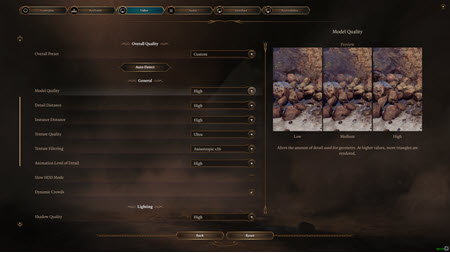
Baldur’s Gate 3: Game Settings & Lore: Image via Larian Studios
•Setting: The game is set in the Dungeons & Dragons (D&D) Forgotten Realms universe, specifically in the Sword Coast region, some years after the events of Baldur's Gate II.
•Plot: You start as a prisoner aboard a Nautiloid ship, infected with an Illithid (Mind Flayer) tadpole. Your journey revolves around finding a cure for this infection while uncovering a plot involving the Absolute, a mysterious new power.
Gameplay Mechanics 
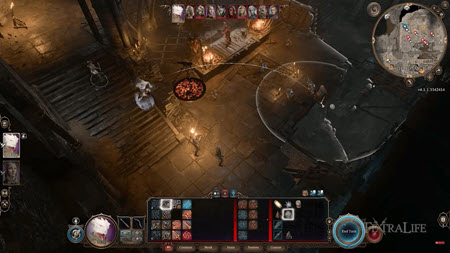
Baldur’s Gate 3: Gameplay machinics: Image via Larian Studios
Turn-Based Combat:
•Combat is turn-based, similar to tabletop D&D. Each character has actions, bonus actions, and movement points per turn.
•Initiative Order: Determines the sequence of turns in combat.
•Verticality and Environment: Use the environment to your advantage; push enemies off cliffs, set traps, or create high ground for ranged attacks.
D20 System:
•Most actions outside of combat like dialogue choices, skill checks, and sometimes combat outcomes, are determined by rolling a 20-sided die (d20) plus relevant modifiers.
Skill Checks:
•Players can attempt various checks (like Persuasion, Deception, Athletics) by rolling a d20. Success depends on the character's skills, the difficulty of the task, and luck.
Spellcasting:
•Spells require a spell slot of the corresponding level. Wizards prepare spells, whereas Sorcerers know a set number of spells they can cast using sorcery points.
Classes and Subclasses:
•Choose from a variety of classes like Fighter, Wizard, Rogue, Cleric, etc., each with unique abilities and subclasses that further define their capabilities.
Character Creation:
•Race, background, and class selection affect gameplay and available dialogue options.
•Ability scores (Strength, Dexterity, Constitution, Intelligence, Wisdom, Charisma) define your character's prowess in different areas.
Interaction and Exploration
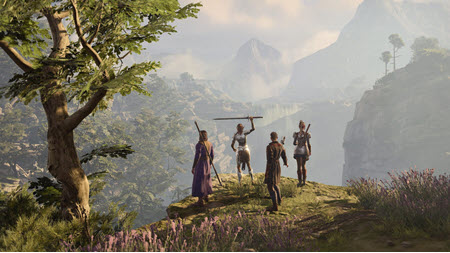
Baldur’s Gate 3: Interaction 7 Exploration: Image via Larian Studios
Dialogue:
•Conversations can lead to different outcomes based on your character's skills, background, race, or class.
•You can often avoid combat through persuasion, intimidation, or deception.
Exploration:
•The world is open for exploration with numerous secrets, hidden paths, and interactive elements.
•Use skills like Perception, Investigation, or Arcana to uncover secrets or solve puzzles.
Companions and Party Management
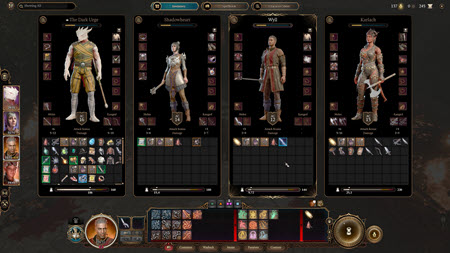
Baldur’s Gate 3: Companions & Party management: Image via Larian Studios
Companions:
•Recruit characters with their own backstories, desires, and moral compasses.
•Companion approval affects their loyalty and romance options.
Party Setup:
•You control a party of up to four characters. Each member can be controlled individually in combat or through group AI settings outside of combat.
Saving and Resting
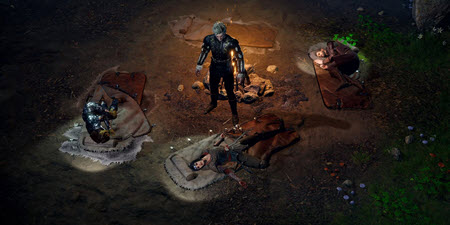
Baldur’s Gate 3: Saving 7 Resting: Image via Larian Studios
•Saving: You can save anytime outside of combat or important dialogue. There's also an autosave feature.
Resting:
•Short Rest: Heals some hit points and might refresh certain abilities.
•Long Rest: Fully restores health, spell slots, and resets certain daily abilities. Long rests consume camp supplies but can also trigger significant story events or companion interactions.
Inventory and Crafting
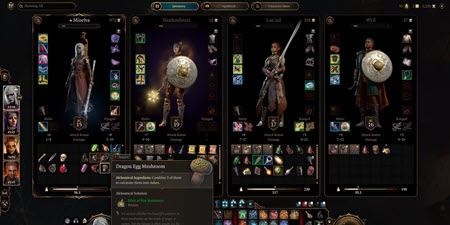
Baldur’s Gate 3: Inventory and crafting: Image via Larian Studios
•Inventory: Each character has a personal inventory, and there's a shared party stash.
•Crafting: While not overly complex, you can combine items or use certain objects to create potions, bombs, or arrows.
Choices and Consequences
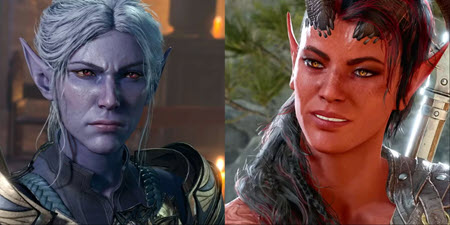
Baldur’s Gate 3: Choices and Consequences: Image via Larian Studios
•Decisions: Every choice in dialogue, combat, or exploration can have repercussions, altering the story, NPC reactions, or even the world's state.
•Moral Alignment: While not strictly defined, your actions influence how characters perceive you, which can affect how certain quests unfold.
Final Tips: 
•Experiment: Baldur's Gate 3 encourages creative solutions, whether in combat or dialogue.
•Read Everything: Tooltips, item descriptions, and character sheets contain useful information.
•Engage with Companions: Their stories add depth to your adventure and can unlock unique quests or abilities.
You may also like:
•The Story behind Baldur’s Gate 3
•Editions and DLC Guide for Baldur’s Gate 3
•System Requirements Guide for Baldur’s Gate 3
•Platforms Guide for Baldur’s Gate 3
•Download Guide for Baldur’s Gate 3
•Update Guide for Baldur’s Gate 3
•Crossplay Guide for Baldur’s Gate 3
•Campaign Guide for Baldur’s Gate 3
•PvE Operations Guide for Baldur’s Gate 3
•Enemies Guide for Baldur’s Gate 3
•Customization Guide to Baldur’s Gate 3
•Game Basics for Baldur’s Gate 3
•Basic Walkthrough for Baldur’s Gate 3
•Voice Cast for Baldur’s Gate 3
•Top 10 Tips & Tricks for playing Baldur’s Gate 3
